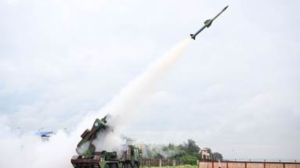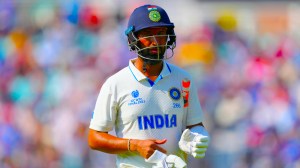Experts call for feminist foreign policy, greater inclusion
The seminar opened with Prof Pam Rajput noting that while women have historically shaped informal diplomacy, their representation in formal structures remains limited
 The seminar closed with a collective call for integrating formal and informal arenas, amplifying women’s voices and embedding feminist principles in global diplomacy
The seminar closed with a collective call for integrating formal and informal arenas, amplifying women’s voices and embedding feminist principles in global diplomacyA two-day international seminar on “Women in Diplomacy” concluded on Sunday, bringing together diplomats, scholars, activists and youth to deliberate on the past, present and future of women’s role in global diplomacy. The event underscored persistent gender gaps in formal diplomacy and called for a feminist foreign policy that centres around grassroots voices.
The seminar opened with Prof Pam Rajput noting that while women have historically shaped informal diplomacy, their representation in formal structures remains limited — only three women have ever presided over the UN General Assembly and just 176 of India’s 815 Indian Foreign Service officers are women. Ambassador Bhaswati Mukherjee emphasised that “women’s rights are human rights,” while Ambassador Ruchira Kamboj spoke about breaking the glass ceiling, warning that barriers persist. Guests of honour included Kanta Singh, Prof Nilofar Khan and Chandi Joshi, who shared perspectives from South-East Asia, Kashmir and UNIFEM.
Day One featured sessions chaired by Ambassador Ruchi Ghanshyam and Meera Khanna, where speakers such as Ambassadors Manjeev Singh Puri, Manju Seth and A R Ghanshyam, along with international voices like Dr Piotr Switalski and Laura Baldwin, addressed structural barriers, pay gaps and the “feminisation of international relations” through empathy and listening. Grassroots perspectives highlighted the impact of movements such as Liberia’s peace campaign and India’s Chipko movement in shaping diplomacy.
Latin American experiences were shared in an online session by Dr Mabel Bianco, who recalled women’s conferences and feminist foreign policy advances in Chile and Mexico. Rosa Lizarde called for UN reforms, strengthening the Commission on the Status of Women and appointing a woman as UN Secretary-General. Audience interventions raised issues like cyber violence, LGBTQIA+ inclusion and the role of Asha and Anganwadi workers as informal diplomats.
Day Two focused on everyday diplomacy beyond negotiating rooms. Speakers such as Dr Zohra Batul, Dr Sana Absar, Dr Nirva Safria and Prof Richa Ranjan examined diplomacy through media, art, refugee contexts and gendered spaces. Drawing on history, Dr Kanwalpreet spoke on women bridging borders during Partition, while Dr Deepika Bahri stressed the need for mentorship and leadership pipelines.
A youth segment, Young Minds Speak, saw Tanya Vats discuss accessible geopolitics, Lajpat Yadav address people’s movements and climate activism, and Nandini Mathur highlight transformational feminist diplomacy. In a paper entitled From Tea Table to Treaty Table, Avani Garg urged diplomats to represent nations, not gender, and to “rebuild the table” for inclusion.
The seminar closed with a collective call for integrating formal and informal arenas, amplifying women’s voices and embedding feminist principles in global diplomacy.







